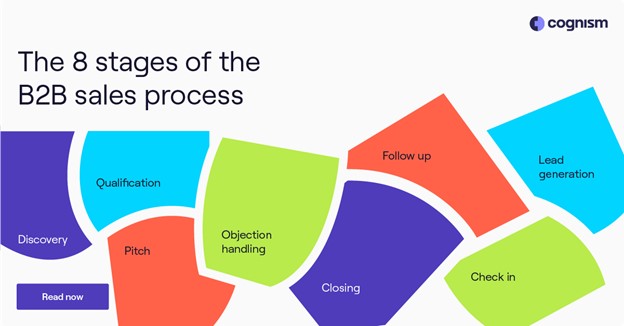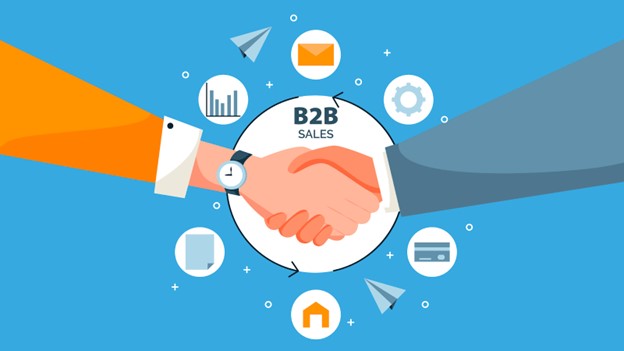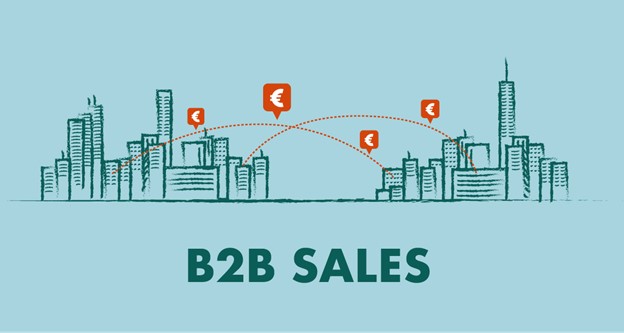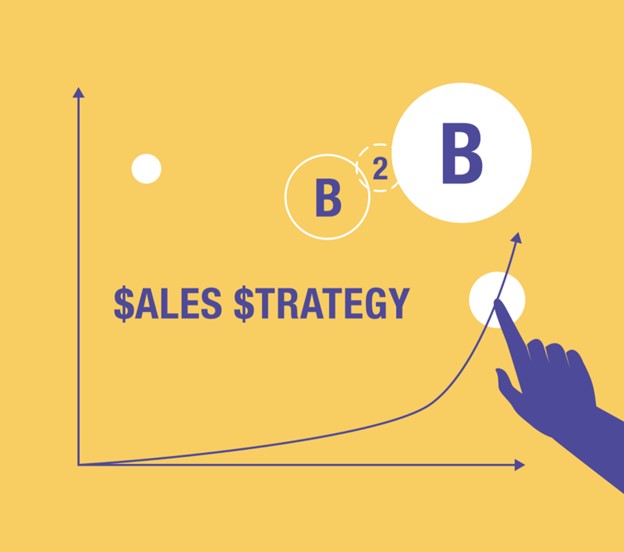16 min to read
If you’re looking for new and innovative ways to empower your sales operation with Salesforce, then look no further. Keeping track of changes in business processes can be a major challenge; however, utilizing the power of CRM automation and workflow allows you to simplify this process without compromising on quality or time.
In this blog post, we will explore seven ways to use workflow background information to create more efficient workflows and streamline your Salesforce operations for ultimate success. We share tips on improving data accuracy, ensuring consistent communication throughout the company, routing requests quickly and accurately, and eliminating manual steps from long-winded tasks. Get ready to unlock some insight, reduce downtime and make life easier!
CodeDesign is the leading digital marketing agency in Lisbon Portugal.

Track changes in the customer contact information
Businesses must evolve and adapt alongside their customers' rapidly changing needs and preferences. This being said, keeping track change in Salesforce of customer contact information is important for maintaining strong relationships and providing exceptional customer service.
That's where Salesforce comes in – a powerful tool for managing customer data and ensuring accuracy and efficiency. Salesforce allows companies to easily track changes in customer contact information, enabling them to stay on top of any updates or modifications. By utilizing Salesforce, businesses can maximize their customer engagement and deliver better experiences across all touchpoints. Read this complete guide on digital marketing funnel and then choose the right digital marketing channel for your business.
Tracking conversations with customers and prospects in real-time
Keeping track of customer conversations in real time can differentiate between success and failure. With the help of Salesforce, however, this task has never been easier. This powerful platform allows you to track interactions with customers and prospects, ensuring you never miss a beat.
Thanks to its intuitive interface, Salesforce is easy to use, even for those new to customer relationship management. By harnessing the power of this tool, you can stay on top of your communication with customers and prospects, helping you build stronger relationships and, ultimately, drive more business.
Leverage the reporting capabilities to identify trends
Salesforce is a powerful tool that can provide valuable insights into your organization's performance. By leveraging its robust reporting capabilities, you can easily identify trends and areas of improvement. With just a few clicks, you can generate detailed reports that reveal key metrics and performance indicators, helping you to make informed decisions and steer your business in the right direction.
Whether you want to analyze sales data, identify bottlenecks in your processes, or pinpoint areas where you need more resources, Salesforce can provide the insights and analytics you need to take your business to the next level. So, if you're looking to improve your bottom line, start by unlocking the full potential of Salesforce's reporting capabilities.
Integration with other sales applications for improved collaboration
Sales teams rely on multiple applications to manage customer interactions, track leads, and close deals. However, juggling different software programs can lead to a lack of synchronization and wasted time. That's where integrating Salesforce with other sales applications comes in. By seamlessly connecting these platforms, sales teams can access all the information they need in one place, without wasting time switching between programs.
Whether it's sharing leads with customer service, integrating marketing automation tools, or bringing in data from other sources, integrating Salesforce with other sales applications has the potential to transform the way your team operates, improve collaboration, and boost productivity. Check these Amazon FBA tips to grow your business and see how optimising your Amazon listing could help you grow.
Automate data entry processes and record creation tools
Data entry can be tedious, but thanks to Salesforce forms and record creation tools, that burden can be lifted. These tools automate the data entry process, saving precious time and effort. The forms are easy to use and can be customized to suit your specific needs. With just a few clicks, data can be entered efficiently and accurately.
The record creation tools also aid in streamlining the data entry process by allowing for the quick and easy creation of new records. This automation saves valuable time and reduces the chances of human error. With Salesforce forms and record creation tools, data entry has never been easier.
Tools to gain valuable insights into customer behaviors
Utilizing Salesforce tools like Einstein Analytics has become a game-changer for businesses. This tool helps access valuable insights into customer behaviors, providing a comprehensive overview of customer business interactions. By analyzing customer data, businesses can uncover patterns and trends that can help identify areas for improvement in customer experience, leading to increased customer satisfaction. The insights provided by Einstein Analytics help businesses make informed decisions, optimize processes, and improve ROI. Utilizing such tools in today's competitive market is key to business success.

Enhance Sales Performance with AI-driven Recommendations
The important section of businesses' plans to stay up-to-date with the latest technological advancements - and Salesforce AI-driven recommendations are leading the way. By leveraging AI technology, businesses can now tap into a wealth of insights that can help to enhance their sales performance like never before. These recommendations use machine learning algorithms to analyze vast amounts of data, and provide invaluable insights into customers' behavior and preferences.
By leveraging this data, businesses can tailor their sales strategies to target specific customer needs and preferences, increasing sales and revenue. With Salesforce's AI-driven recommendations, businesses can stay one step ahead of the competition, and unlock the full potential of their sales performance.
Salesforce is a powerful tool for tracking changes in customer contact information, conversations with customers and prospects in real-time, identifying trends and areas of improvement, integrating with other sales applications for improved collaboration, automating data entry processes with Salesforce forms and record creation tools, utilizing tools like Einstein Analytics to gain valuable insights into customer behaviors, and enhancing sales performance capabilities with Salesforce AI-driven recommendations.
With these innovative sales solutions in place, businesses can accelerate their efforts to develop customer relationships that are more efficient and meaningful. Businesses can better communicate their specific needs and stay on top of what's happening. Read this guide on E-commerce supply chain and voice search optimization.
Ultimately allowing them to close more leads faster and increase the organization's overall success. There's no time as good as now to deploy Salesforce into your business processes so you can manage your sales operations with increased efficiency.

B2B Lead Generation Strategy: Integrating with Sales Teams and Salesforce
Harnessing the power of B2B lead generation and integrating it with your sales team and Salesforce is a strategic move that can yield substantial results. This integration aims to bridge the gap between marketing efforts and sales results, thereby driving your business forward.
The Importance of a B2B Lead Generation Strategy
In a business-to-business setting, a robust lead generation strategy is integral to the sales process. It involves identifying and cultivating potential customers for a company's products or services. Effective B2B lead generation strategies encompass a variety of marketing channels, including SEO, email marketing, content marketing, and performance marketing.
Synchronizing Lead Generation with Your Sales Team
An efficient lead generation strategy does not operate in a vacuum. Instead, it should be closely aligned with your sales team's efforts. Sharing insights and data between the two teams ensures a consistent approach to prospective clients and maximizes conversion opportunities.
For example, detailed buyer personas developed by the marketing team can help the sales team understand and approach leads better. Conversely, feedback from the sales team regarding lead quality can help the marketing team refine their lead generation strategies.
Performance Marketing in B2B Lead Generation
Performance marketing can play a critical role in lead generation. It involves online marketing and advertising programs where advertisers pay only when a specific action—like a sale, lead, or click—occurs.
For instance, you can target your ads to a specific audience by using Google Ads or LinkedIn Sponsored Content for your performance marketing efforts. These platforms offer rich targeting options, such as industry, job function, or company size, enabling you to reach the businesses most likely to need your product or service.
SEO and Analytics for Lead Generation
SEO is another crucial aspect of B2B lead generation. By optimizing your website and content for search engines, you can attract more organic traffic, increasing your chances of converting visitors into leads.
Google Analytics is an excellent tool for tracking your SEO performance. By monitoring metrics like organic search traffic, bounce rate, and time spent on site, you can gain insights into your SEO efforts' effectiveness and identify areas for improvement.
Email Marketing and Automation for Nurturing Leads
Once leads are generated, email marketing can be highly effective in nurturing these potential customers. Regular communication with valuable, relevant content can build trust and move leads further down the sales funnel.
Email marketing automation tools like MailChimp or Constant Contact can streamline this process. For example, setting up automated email sequences can ensure that leads receive consistent communication from your company without requiring manual effort for each email.

Integrating with Salesforce for Seamless Data Management
Salesforce, a leading customer relationship management (CRM) platform, can greatly enhance your lead generation and sales processes. By integrating your lead generation strategies with Salesforce, you can efficiently manage leads, track interactions, and align your sales and marketing efforts.
For example, leads generated from your website can be automatically added to Salesforce, ensuring your sales team can access new leads instantly. Additionally, lead behavior and interactions data can be tracked in Salesforce, providing valuable insights for both sales and marketing teams.
Utilizing Salesforce's Lead Scoring Feature
One of the key features of Salesforce is lead scoring, which assigns a numerical value to each lead based on their behavior and profile. This score helps the sales team prioritize leads, ensuring they focus their efforts on those most likely to convert.
By combining lead scoring with the feedback from the sales team, the marketing team can refine their lead generation strategies and focus their efforts where they're most likely to have an impact.
In conclusion, integrating a B2B lead generation strategy with your sales team and Salesforce can greatly enhance your company's sales process. By aligning marketing and sales efforts, leveraging various lead generation techniques, and using Salesforce for seamless data management, you can increase lead quality, improve sales efficiency, and ultimately drive business growth.

Integrating GA4 with Salesforce and HubSpot: The Definitive Guide
Harnessing the power of Google Analytics 4 (GA4), Salesforce, and HubSpot within one integrated ecosystem is a game-changing move for any data-driven business. By consolidating these tools, companies can glean profound insights and drive strategic decision-making.
Understanding GA4, Salesforce, and HubSpot
Before delving into integration, it's important to appreciate each tool's unique capabilities.
GA4, the latest update from Google Analytics, offers a more comprehensive view of user interactions across various platforms. GA4 allows marketers to track users across devices, analyze data using AI, and more accurately report on user lifecycles.
Salesforce is a leading Customer Relationship Management (CRM) platform that enables businesses to manage sales, service, and marketing from one central location. It's renowned for its customizable capabilities, allowing businesses to tailor the CRM to their specific needs.
HubSpot is an all-in-one inbound marketing, sales, and CRM platform. HubSpot's versatility makes it a favorite amongst businesses looking to manage their marketing and sales efforts from one central hub.
Integrating GA4 with Salesforce
Integrating GA4 with Salesforce allows businesses to combine web analytics with customer relationship data, thereby enabling a more comprehensive understanding of customer behaviors and trends.
1. Setting up Google Analytics 360: For Salesforce integration, businesses need Google Analytics 360, the premium version of Google Analytics. This version has a built-in integration feature with Salesforce.
2. Salesforce Setup: In Salesforce, navigate to Setup > Integrations > Google Analytics 360.
3. Connect GA360 to Salesforce: After the initial setup in Salesforce, you'll be prompted to connect your GA360 account. Ensure that the Salesforce account has the necessary permissions to connect with GA360.
4. Configure Data Sharing: Configure your data sharing settings based on your business requirements. You can choose what data to share between Salesforce and GA360.
Integrating GA4 with HubSpot
The GA4 and HubSpot integration enables marketers to combine website behavior data with comprehensive lead and customer data.
1. HubSpot Setup: In HubSpot, navigate to Settings > Tracking & Analytics > Google Analytics.
2. Enter GA4 Tracking ID: Enter your GA4 tracking ID in the Google Analytics Tracking ID field. The tracking ID can be found in the Admin section of your GA4 account.
3. Configure Settings: Configure your settings to track different events and activities on your website. Once configured, HubSpot will send this data to GA4.
Integrating Salesforce with HubSpot
The Salesforce-HubSpot integration unifies your marketing and sales efforts, ensuring each team can access the most updated, relevant information.
1. HubSpot Setup: In HubSpot, navigate to App Marketplace > Apps > Salesforce.
2. Connect Salesforce to HubSpot: Follow the on-screen prompts to connect your Salesforce account with HubSpot.
3. Field Mapping: Customize your field mapping settings to determine how data syncs between Salesforce and HubSpot.
The integration of GA4 with Salesforce and HubSpot revolutionizes your approach to data. With these platforms connected, businesses can track user behavior from first interaction to final sale, improving marketing strategy, sales outreach, and, ultimately, the bottom line.

B2B Lead Generation Strategy: Transforming Call Center Efficiency - A Case Study
B2B lead generation is critical in driving business growth. In this case study, we demonstrate how implementing a strategic B2B lead generation strategy led to a substantial increase in the efficiency of a call center. This story illustrates how the right strategies can transform a business, boosting performance, and driving bottom-line results.
Understanding the Scenario
Our client was a reputable call center agency, with an impressive portfolio of high-profile clients. However, they were facing a decline in efficiency due to outdated lead generation methods. Their sales representatives were spending an excessive amount of time on calls that failed to convert, leading to resource wastage and missed opportunities.
Diagnosing the Challenge
Our initial assessment found that the call center's outdated lead generation method was the primary cause of the decline in efficiency. Their sales team was making cold calls, a strategy that often led to low conversion rates. Moreover, the team had limited visibility on the potential clients they were reaching out to, making it challenging to personalize their approach and increase the likelihood of conversions.
Crafting the B2B Lead Generation Strategy
We aimed to revamp their lead generation process, shifting from cold calling to a data-driven, strategic approach. Here are the key steps we followed:
1. Identifying the Ideal Customer Profile (ICP): We worked with the client to create a comprehensive ICP, detailing the characteristics of their perfect lead. This included industry, company size, job title, pain points, and more.
2. Leveraging Technology: We introduced the client to cutting-edge lead generation tools to identify businesses that matched their ICP. These tools allowed for seamless prospecting, providing valuable information such as business size, industry, and key decision-makers contact information.
3. Nurturing Leads: We designed an email marketing campaign tailored to the leads identified through the prospecting tools. The campaign provided valuable content to nurture potential leads, positioning the client as an industry authority.
Implementing the Strategy
Once the strategy was in place, the client's sales representatives had access to a rich database of high-quality leads. Instead of making cold calls, they could now engage with potential clients that matched their ICP, drastically increasing the potential for successful conversions.
The Results
The client reported a significant improvement in call center efficiency within three months of implementing the B2B lead generation strategy. The conversion rate increased by 35%, and the average call duration decreased by 20%, leading to improved time management.
Takeaway
This case study illustrates the transformative power of a well-planned and effectively executed B2B lead generation strategy. Combining a clear understanding of the client's needs with cutting-edge technology and data-driven methods makes it possible to supercharge a call center's efficiency and drive substantial business growth.

The Future of B2B Lead Acquisition: New Trends and Automation
The landscape is continually evolving in business-to-business (B2B) marketing. As we progress, trends are leaning towards more automated and sophisticated approaches. It's no longer just about gathering leads; it's about acquiring the right leads and nurturing them effectively. In this article, we'll delve into the future of B2B lead acquisition strategies, highlighting new trends and the role of automation.
Artificial Intelligence and Machine Learning
Artificial Intelligence (AI) and Machine Learning (ML) have revolutionized business operations, and B2B lead acquisition is no exception. AI and ML have made it possible to predict the likelihood of a lead converting into a customer, allowing businesses to focus on the most promising leads. This predictive lead scoring can drastically increase sales efficiency, leading to improved conversion rates and ultimately, more revenue.
Further, AI and ML are instrumental in improving personalization in marketing efforts. They can analyze large amounts of data and deliver insights on what content leads find most engaging, allowing businesses to tailor their approach based on what is most likely to drive engagement and conversions.
Predictive Analytics
In conjunction with AI and ML, predictive analytics are becoming increasingly important in B2B lead acquisition. These sophisticated algorithms analyze historical data to identify trends and patterns, forecasting future outcomes. With predictive analytics, businesses can anticipate which marketing efforts will yield the best results, allowing them to allocate their resources more effectively and boost their ROI.
Automation in Lead Nurturing
Automation is playing an increasingly prominent role in lead nurturing. Automated email marketing campaigns can deliver personalized content to leads at the right time, driving engagement and pushing leads further down the sales funnel. Further, automation tools can help businesses track the engagement of their leads, providing valuable insights that can inform future marketing efforts.
Multichannel Approach
As the digital landscape continues to evolve, so too do the channels businesses can reach their leads. A multichannel approach that encompasses email, social media, content marketing, and SEO is crucial to reach leads wherever they are online.
In particular, social media platforms like LinkedIn have become essential tools for B2B lead acquisition. Businesses can use these platforms to build their brand, connect with potential leads, and deliver valuable content. Further, these platforms provide businesses with access to rich demographic data, allowing them to target their marketing efforts more effectively.
Content Marketing
Content marketing continues to be a powerful tool for B2B lead acquisition. By producing high-quality, informative content, businesses can position themselves as thought leaders in their industry, attracting leads and building trust. However, it's not just about producing content; it's about producing the right content. Businesses must understand their leads' pain points and provide content addressing these issues. This targeted approach can drive engagement and conversions.
Conclusion
As we look to the future, it's clear that the B2B lead acquisition world is set to become even more sophisticated and automated. Businesses will need to adapt to these changes, leveraging new technologies and approaches to stay ahead of the competition. By doing so, they can improve their lead acquisition strategies, driving growth and success in the years to come.
FAQS - Frequently Asked Questions
How can Salesforce improve the tracking of customer contact information?
Salesforce enhances the tracking of customer contact information by providing a centralized platform where all customer interactions, details, and history are stored and easily accessible. This comprehensive customer relationship management (CRM) system allows businesses to maintain up-to-date records of customer conversations, transactions, and preferences, ensuring that any team member can access complete customer profiles at any time. With Salesforce, businesses can efficiently manage contact details, segment customers into different categories, and personalize communication, leading to improved customer relationships and increased sales opportunities.
What are the benefits of real-time tracking of customer conversations in Salesforce?
The benefits of real-time tracking of customer conversations in Salesforce include improved responsiveness, personalized customer interactions, and enhanced customer satisfaction. By having immediate access to the history and context of customer interactions, team members can provide informed and cohesive responses, ensuring continuity in customer service and support. Real-time tracking also enables businesses to identify and address customer needs promptly, tailor interactions based on up-to-date information, and make data-driven decisions that enhance the customer experience. This level of engagement fosters stronger customer relationships and loyalty.
How can Salesforce's reporting capabilities help identify business trends?
Salesforce's reporting capabilities help identify business trends by providing detailed analytics and insights into customer data, sales performance, and marketing effectiveness. With customizable reports and dashboards, businesses can track key performance indicators (KPIs), monitor sales cycles, and analyze customer behavior patterns over time. This information allows companies to identify trends, opportunities, and areas for improvement, enabling strategic decision-making and targeted actions to capitalize on market shifts. By leveraging Salesforce's comprehensive reporting tools, businesses can stay ahead of the competition and adapt to changing customer needs and preferences.
What advantages does integrating Salesforce with other sales applications offer?
Integrating Salesforce with other sales applications offers several advantages, including streamlined operations, enhanced data accuracy, and a unified view of customer interactions across platforms. This integration facilitates the automatic transfer of data between systems, reducing manual entry errors and saving time. It allows sales teams to access a broader range of tools and data within Salesforce, providing a more comprehensive understanding of customer relationships and sales opportunities. Additionally, integration can automate workflows and processes, improving efficiency and enabling sales teams to focus more on strategy and customer engagement rather than administrative tasks.
How does automating data entry with Salesforce enhance sales operations?
Automating data entry with Salesforce enhances sales operations by increasing efficiency, accuracy, and productivity. Automation eliminates the need for manual data entry, reducing the likelihood of errors and freeing up sales representatives to focus on more strategic activities, such as customer engagement and sales negotiations. It also ensures that customer information is updated in real-time, providing sales teams with current data to inform their interactions and decisions. This streamlined process leads to faster response times, improved customer satisfaction, and ultimately, higher sales performance.
In what ways can Salesforce tools provide insights into customer behaviors?
Salesforce tools provide insights into customer behaviors by collecting and analyzing data from various customer interactions and touchpoints. Features like Sales Cloud, Service Cloud, and Marketing Cloud offer comprehensive analytics that reveal patterns, preferences, and trends in customer behavior. These insights can help businesses tailor their marketing, sales, and service strategies to better meet customer needs and preferences. Additionally, Salesforce's AI capabilities, such as Einstein Analytics, can predict future customer behaviors based on historical data, enabling businesses to anticipate needs and personalize their offerings more effectively.
How can AI-driven recommendations from Salesforce boost sales performance?
AI-driven recommendations from Salesforce, particularly through its Einstein AI technology, boost sales performance by providing sales teams with insights and suggestions based on data analysis. These recommendations can include which leads to prioritize, the next best actions to take with prospects, and personalized communication strategies. By leveraging machine learning algorithms, Salesforce can analyze past sales data to forecast future trends, identify cross-sell and upsell opportunities, and optimize pricing strategies. This targeted approach enables sales teams to focus their efforts where they are most likely to succeed, significantly improving sales efficiency and effectiveness.
What is the role of Salesforce in B2B lead generation strategy?
In a B2B lead generation strategy, Salesforce plays a pivotal role by serving as a powerful CRM platform that helps businesses manage and nurture leads throughout the sales funnel. With its comprehensive suite of tools for marketing automation, lead tracking, and analytics, Salesforce enables businesses to capture leads from various channels, score them based on their actions and engagement, and nurture them with personalized communication. Salesforce's integration capabilities with marketing platforms ensure a seamless flow of lead information, allowing for efficient segmentation and targeted campaigns. By providing a 360-degree view of each lead, Salesforce helps sales and marketing teams align their efforts and strategies, ultimately improving lead conversion rates and accelerating the sales cycle.
How can integrating Salesforce with your sales team improve lead management?
Integrating Salesforce with your sales team can significantly improve lead management by automating lead capture, scoring, and assignment processes. With Salesforce, leads from various sources can be centrally collected, assessed based on predefined criteria, and automatically routed to the appropriate salesperson, ensuring that leads are promptly and efficiently handled. The platform's real-time tracking and analytics capabilities allow sales teams to monitor lead engagement and behavior, enabling them to tailor their follow-up strategies for better conversion rates. Additionally, Salesforce's collaboration tools foster better communication within the sales team, ensuring everyone is aligned and informed about lead status and activities, leading to a more cohesive and effective sales approach.
What features of Salesforce help in prioritizing and scoring leads effectively?
Salesforce offers several features that assist in prioritizing and scoring leads effectively, including customizable scoring rules, AI-powered insights, and integrated analytics. The lead scoring system can be tailored to a business's specific criteria, such as demographic information, engagement levels, and behavior on the website, allowing for automatic prioritization of leads based on their perceived value and likelihood of conversion. Salesforce's AI technology, Einstein, further enhances lead scoring by providing predictive scoring capabilities, identifying leads most likely to convert based on historical data patterns. Additionally, the platform's analytics tools offer in-depth insights into lead behavior and performance, enabling continuous refinement of scoring models and strategies for maximum efficiency and effectiveness in lead management.

About Bruno GavinoBruno Gavino is the CEO and partner of Codedesign, a digital marketing agency with a strong international presence. Based in Lisbon, Portugal, with offices in Boston, Singapore, and Manchester (UK) Codedesign has been recognized as one of the top interactive agencies and eCommerce agencies. Awarded Top B2B Company in Europe and Top B2C company in retail, Codedesign aims to foster personal relationships with clients and create a positive work environment for its team. He emphasizes the need for digital agencies to focus on data optimization and performance to meet the increasingly results-driven demands of clients. His experience in digital marketing, combined with a unique background that includes engineering and data, contributes to his effective and multifaceted leadership style. |

About CodedesignCodedesign is a digital marketing agency with a strong multicultural and international presence, offering expert services in digital marketing. Our digital agency in Lisbon, Boston, and Manchester enables us to provide market-ready strategies that suit a wide range of clients across the globe (both B2B and B2C). We specialize in creating impactful online experiences, focusing on making your digital presence strong and efficient. Our approach is straightforward and effective, ensuring that every client receives a personalized service that truly meets their needs. Our digital agency is committed to using the latest data and technology to help your business stand out. Whether you're looking to increase your online visibility, connect better with your audience, get more leads, or grow your online sales. For more information, read our Digital Strategy Blog or to start your journey with us, please feel free to contact us. |
CodeDesign is leading:
- Digital Agency
- Digital Marketing Agency
- Digital Ecommerce Agency
- Amazon Marketing Agency

Add comment ×